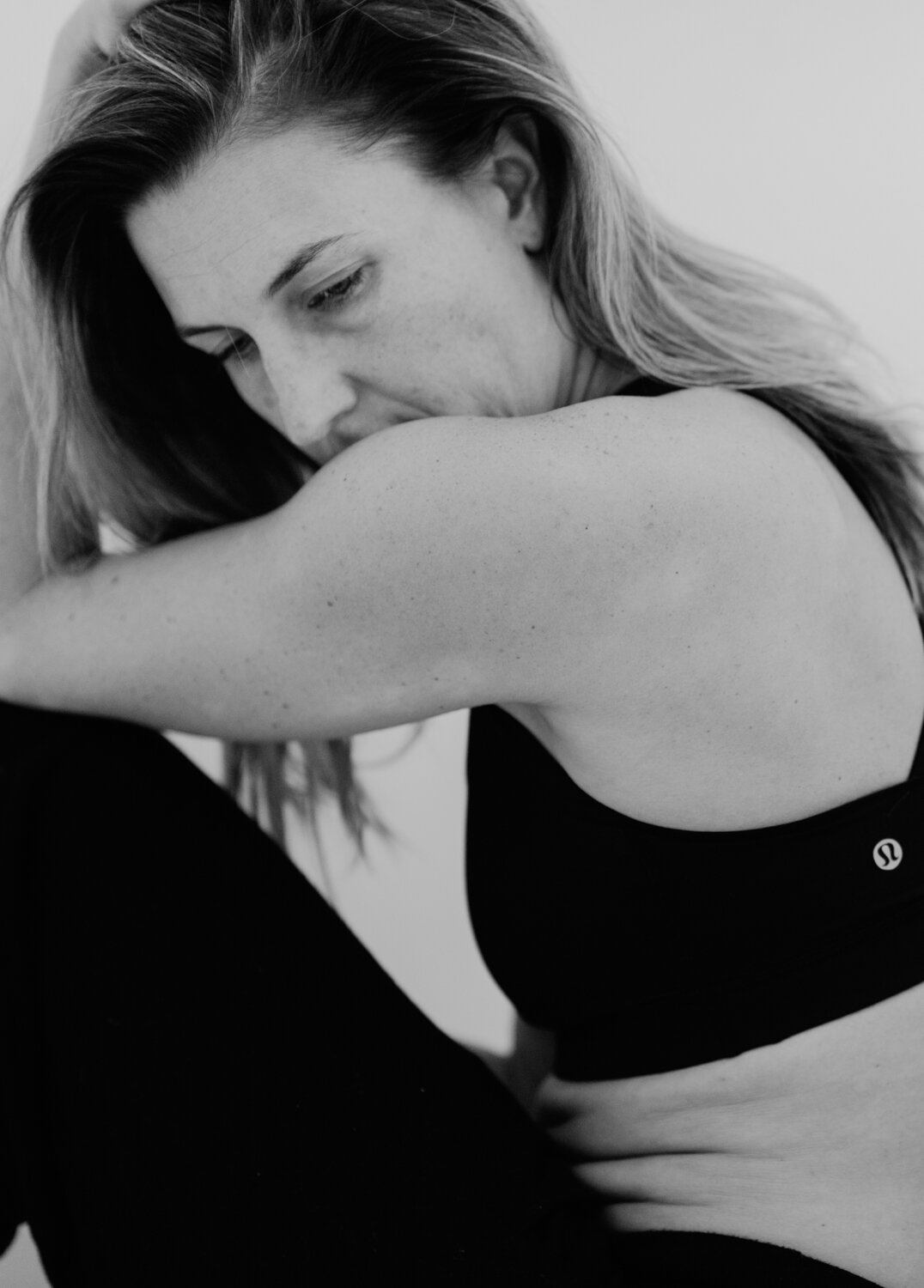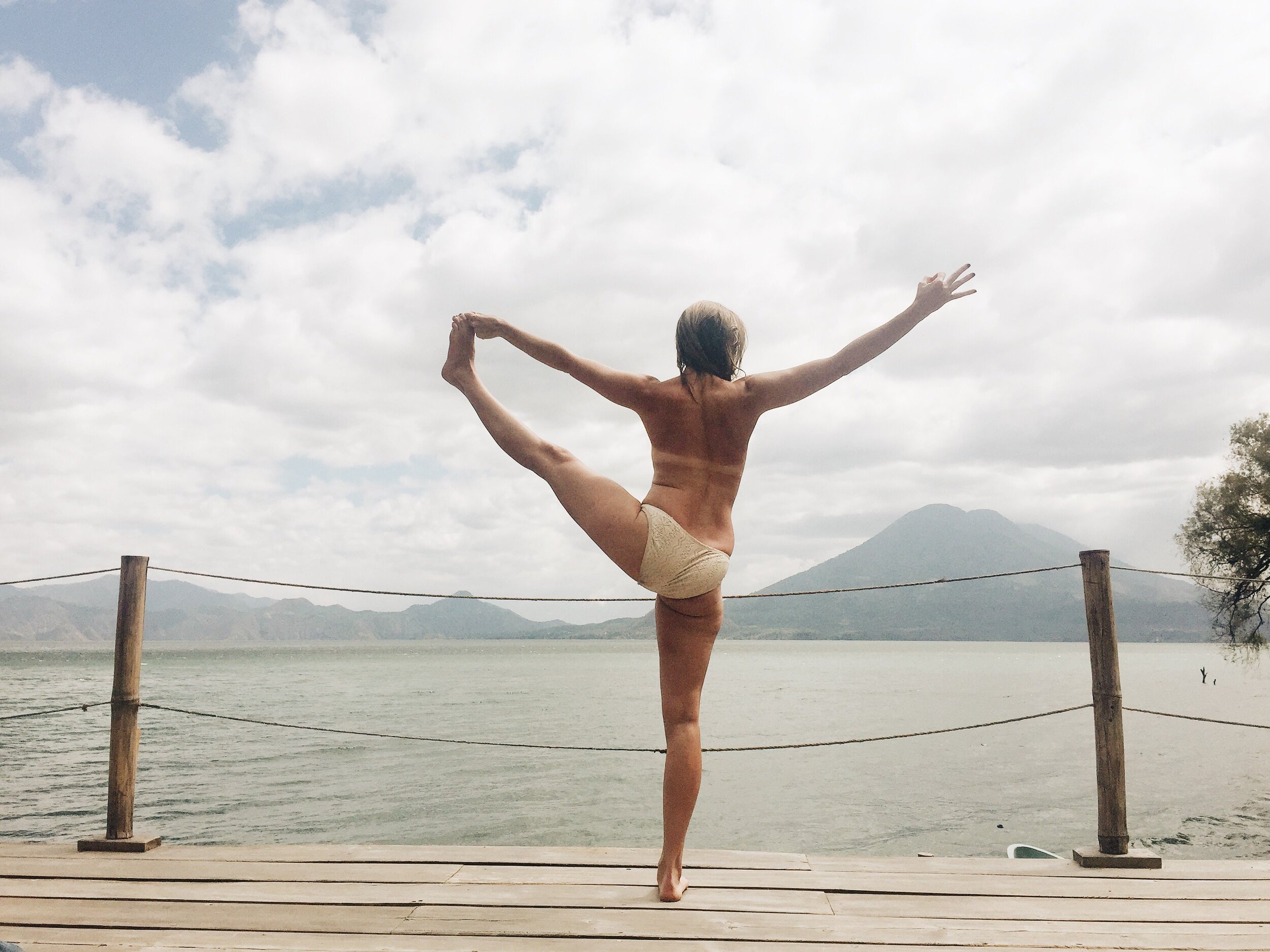Loving the Skin You're in | The Refined Collective Part II
Self portrait c/o Kat Harris
I’ll never forget the first time I threw up my food. It was my freshman year of college. I was leaving the cafeteria after dinner with a few of my teammates on the tennis team, and once again, we’d all had way too much at the dorm buffet. One of the girls said, “I could totally throw up right now.” Another girl said, “It’s not that hard—I do it sometimes.”
A few minutes later we were behind the dumpsters, each of us putting a finger down our throat. It wasn’t pretty. We walked back to our dorm with bloodshot eyes, our throats scratched and burning, and feeling bonded in a weird way. It was our little secret, and I was hooked.
I had never struggled with body image before college. I was confident and ate whatever I wanted. But then I became a collegiate athlete, and everything changed. As a Division 1 athlete on a full-ride scholarship I felt pressure to be fit for the sport I was in, mixed with societal pressure to be a perfect ‘model size.’ It was overwhelming. As an athlete I worked out more than 20 hours a week, had weekly weigh-ins, and had to keep a weekly food journal that was submitted to my coach.
Almost overnight I went from thinking nothing about the food I put in my body to it be my every waking thought. There was good food and bad food, but most of it seemed to be bad.
Food was no longer my friend, but my nemesis—an enemy I was convinced was there to take me down.
In addition to gaining a significant amount of muscle as a college athlete, my body was changing. Instead of the freshman 15, I gained the freshman 30. Binging and purging contributed to my weight gain. Within a year I had lost all confidence and I hated my body. I felt like I had ants crawling all over me and I wanted out of my skin. Instead, I hid it with baggy sweat pants and oversized button-ups.
Throwing up never became easy for me. I always left the bathroom looking like I had cried for hours. The binging and purging continued for much of my freshman year, but then morphed to just binging, then counting every calorie, then eating something and working out for a precise amount of time to burn it off. For the rest of my college career and into my 20s I was a slave to food and obsessed with my body.
A life in which I was free from the bondage of food and could look at my naked body with love and acceptance seemed like a reality I would never again have.
Instead of seeing my body as the gift it was, all I could see were the imperfections. I hated it. I’d see other girls in two piece bathing suits or a fitted top and feel achingly jealous. For years I kept my struggle a secret. Sometimes I would let someone into the process, but shame kept it tucked away in the dark. I would get fed up and vow to myself and to God never again—only to find myself in the same old patterns the very next morning.
Underneath it all I felt like I wasn’t enough. I felt unworthy of love. And the only way I could get love was to look a certain way.
The burden of keeping it secret finally became too much to bear. One of my best friends became an ally, and she prayed for me to find freedom. The more I shared my struggle, the less shame I felt.
The path of freedom involved many baby steps. There was no secret formula or quick fix out of this. At one point I stopped working out altogether because I couldn’t do it in a healthy way. When I moved to California a huge breakthrough happened when I decided to eat what I wanted, when I wanted, and work out only if I felt like it. On top of that I moved into a house full of women and we had some house rules: no body shaming, no talking about food as if it is the enemy. It was foreign territory. If we weren’t talking about how bad we were that day at lunch, or how we really shouldn’t eat that ice cream—what would we talk about? It turns out we had a lot to talk about.
Instead of cursing food or our bodies, we blessed it—all of it.
Instead saying does my butt look big—we praised one another’s differences and curves. I started going to counseling, I texted friends on days I was struggling, and I confessed when I gave into the temptations. It was not easy or natural work—it was hard, took discipline, and lot of support from others. But fighting for healing, freedom, and truth is so worth it.
When you go through a break up, you sometimes wonder if your heartache will ever end. And then one day, out of nowhere you realize you haven’t cried in two weeks. Healing can sneak up on us in that way. That’s how it was for me with my eating disorder. Now at 31, my struggle with an eating disorder seems like a lifetime ago.
“The more I shared my struggle, the less shame I felt.”
-Kat Harris
Last year when I was in Guatemala there was an afternoon where all the guys went rock climbing and the girls stayed at our private beach to lay out. We basked in the sun, laughed, and talked about our hearts. And since there were no boys in sight, we took off our tops and laughed like giddy school girls. I looked around and wanted to cry.
Ten years earlier I wouldn’t have been caught dead on a beach in a swimsuit — much less a bikini. I realized I loved myself. I adored my body, and I was FREE from the bondage of fear, free from the eating disorder and no longer had a distorted view of my body. I never thought I would feel this way.
Many people think if they aren’t throwing up their food or physically wasting away, they don’t have an eating disorder. But food is a gift and our bodies are to be treasured, and when there is a distortion in how we view food and our bodies — no matter how big or small—there is dysfunction.
I have wrinkles on my forehead and stretch marks on my thighs, and I still have moments of insecurities. But I can honestly say I love the skin I’m in.
If you are in the throes of an eating disorder, you are not alone. There is freedom for you! I believe it. I have hope for you. If I can be free, so can you. Bring your struggle from the darkness to the light. Share it with others, ask for support, go to counseling, get enrolled into a rehab facility.
You are beautiful.
You are worth fighting for.
You are enough.
XO,
Kat
The Refined Collective is a collaborative series featuring the stories of multiple women. Click through and read their perspective on "Loving the Skin You're In...": Lauren Scruggs Kennedy, Tutti del Monte, Chelsey Korus, Nikia Phoenix, + Joanne Encarnacion.




